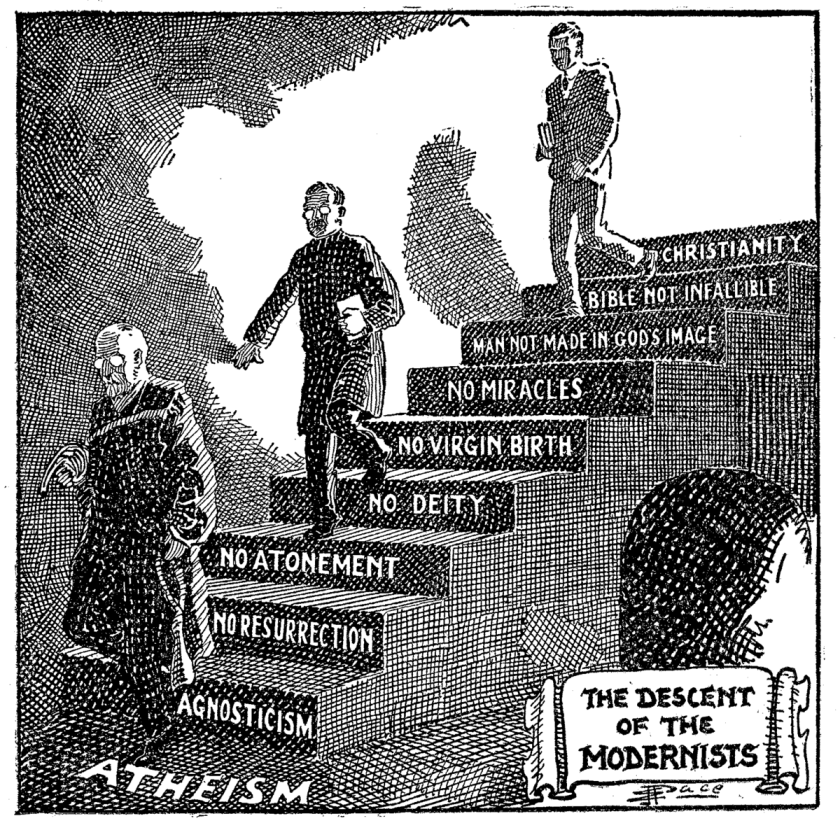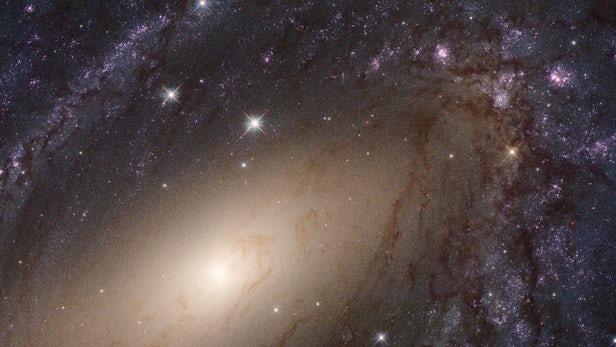
This question has been the fuel for countless discussions, arguments, and debates for centuries. I spend several hours a week viewing YouTube documentaries on apologetics, postmodernism, Israeli-Palestinian relations, Islam, creationism, evolution, and atheism. Having undertaken a systematic study of worldviews, I’m reminded that nearly no one simply creates his or her own worldview. We inherit a great deal of our worldview from our parents, primary caregivers, school, and church. I must always keep my own worldview in mind—including biases, prejudices, presuppositions, and misconceptions. This is critical. Not only do we interpret information according to our worldview, it is our worldview that filters what we see or what we deem relevant.
“The conflict between religion and science is unavoidable. The success of science often comes at the expense of religious dogma; the maintenance of religious dogma always comes at the expense of science” (Sam Harris).
ORIGINS OF A CONFLICT

Science is at war with religion. This conflict can be traced back to the Dark Ages during which the church quite vigorously forced its dogma and control on church members. Anyone who questioned church authority was summarily punished. Some of science’s forefathers—Galileo, Copernicus, and Bruno—were persecuted. What we miss, however, if we hold this “abridged” history of science versus religion are the numerous examples of Christianity and science getting along just fine, answering the many questions we have about us, our planet, and our universe.
If we refuse to have at least an open mind about a different paradigm or worldview, we’ll never have the opportunity to think for ourselves. Education is extremely important, but just how important is public education? Public schools teach that science and education are incompatible. Period. This wild and unverified conclusion is reckless. Christopher Hitchens (1949-2011) said, “All attempts to reconcile faith with science and reason are consigned to failure and ridicule.” Richard Dawkins, author of The God Delusion, wrote, “I am hostile to fundamentalist religion because it actively debauches the scientific enterprise… It subverts science and saps the intellect.”
Many believe science and Christianity are at odds, but the opposite is actually true. There is no underlying conflict between Christianity (currently the world’s largest religion at 2.4 billion believers) and science. Naturally, this does not mean that religious antagonism to science does not exist. Believers often take on science with a vengeance. But science history shows that such claims of antagonism are often exaggerated or unsubstantiated. Let’s remember that science (as a sustained and organized movement) emerged in Christian Europe. During the sixteenth century, people from every culture studied the natural world, and yet modern science appeared first in Europe among a civilization primarily shaped by the Judeo-Christian worldview. To be blunt, Christianity provided the philosophical foundation and spiritual motivation for doing science. The Christian worldview—with its insistence on the orderliness of the universe, its emphasis on human reason, and its teaching that God is glorified as we seek to understand His creation—laid the foundation for the modern scientific revolution.
MOST SCIENTIFIC PIONEERS BELIEVED IN GOD
Most scientific pioneers were theists, including prominent figures such as Copernicus, Newton, Pascal, Kepler, Pasteur, and Planck. Many of these individuals intently pursued science because of their belief in the Christian God. Francis Bacon believed the natural world was full of mysteries that God means for us to explore. This is often referred to as God’s general revelation. Kepler wrote, “The chief aim of all investigations of the external world should be to discover the rational order which has been imposed on it by God, and which He revealed to us in the language of mathematics.” Newton believed his scientific discoveries offered convincing evidence for the existence and creativity of God. He said, “This most beautiful system of sun, planets, and comets could only proceed from the counsel and dominion of an intelligent and powerful being.”

This argument is lost on atheists like Christopher Hitchens, who discounts the religious convictions of these scientific giants. He said belief in God was the only option for a scientist at that time in history. But this puts Hitchens in a pickle. If religious believers get no credit for their positive contributions to society (e.g., shaping modern science) simply because “everyone was religious,” then why should their mistakes be used to discredit them? This is truly a double-standard. To make the case that religion “poisons everything,” Hitchens has to ignore much evidence to the contrary. Dawkins accepts that some early scientific pioneers may have been Christians, but he believes Christian scientists today are a rarity. He said, “Great scientists who profess religion become harder to find throughout the twentieth century.”
NATURALISM VERSUS THEISM
Naturalism is a scientifically oriented worldview that completely denies the existence of God and the soul. Rather, it holds that everything arises from natural properties and causes; supernatural or spiritual explanations are excluded or discounted. The term seems to have no precise meaning today. Different philosophers over the centuries have proffered myriad definitions. But naturalists have always attempted to align philosophy more closely with science. Adherents to this philosophy assert that natural laws are, well, natural—that they govern the structure and behavior of the natural universe all on their own without input from a Creator or Intelligent Designer.
Theism holds that there is a personal creator and sustainer of the universe who is omnipotent, omniscient, essentially good, omnipresent, and eternal. Christianity believes that the Creator has revealed Himself to humankind in the person of Jesus Christ, a member of the trinity of God, who was resurrected from the dead in confirmation of His deity. Christians believe in the supernatural world, including the One True God, spirit, angels, and miracles. Here’s the deal! Naturalism and theism are at odds with each other, not science and Christianity. Naturalism is intrinsically atheistic because it sees nothing outside of the natural or physical world.

Have you found yourself asking, Why does the natural world make any sense to begin with? Albert Einstein once remarked that the most incomprehensible thing about the universe is that it is comprehensible. Einstein understood a basic truth about science—it relies upon certain philosophical assumptions about the natural world. These assumptions include the existence of an external world that is orderly and rational, and the trustworthiness of our minds to grasp that world. Science cannot proceed apart from these assumptions, even though they cannot be independently proven. Oxford professor John C. Lennox makes a provocative statement: “At the heart of all science lies the conviction that the universe is orderly.” Without this deep conviction science would not be possible.
In order to further expound on the complexity of explaining the universe, take a look at the following excerpt from Stephen Hawking’s seminal book A Brief History of Time?
When most people believed in an essentially static and unchanging universe, the question of whether or not it had a beginning was really one of metaphysics or theology. One could account for what was observed equally well on the theory that the universe had existed forever or on the theory that it was set in motion at some finite time in such a manner as to look as though it had existed forever. But in 1929, Edwin Hubble made the landmark observation that wherever you look, distant galaxies are moving rapidly away from us. In other words, the universe is expanding. This means that at earlier times objects would have been closer together. In fact, it seemed that there was a time, about ten or twenty thousand million years ago, when they were all at exactly the same place and when, therefore, the density of the universe was infinite. This discovery finally brought the question of the beginning of the universe into the realm of science.
According to British physicist, broadcaster, and educator Paul Davies, the intelligibility of the universe points toward a rational foundation. He says science is based on the assumption that the universe is thoroughly rational and logical at all levels. Every single level! Atheists claim that the laws of nature exist without any basis in reason and that the universe is ultimately absurd. As a scientist, Davies said he found this position hard to accept. He said, “There must be an unchanging rational ground in which the logical, orderly nature of the universe is rooted.”
CONCLUDING REMARKS
This brings us full-circle. It’s not Christianity that is at odds with science—it’s naturalism. Problem is, people like Richard Dawkins believe there is a conflict between science and religion because they think there is a conflict between evolution and theism. However, the conflict is between science and naturalism, not between science and a belief in God. It’s not simply that the order of the universe fits better with God in it. There is a much deeper link. An ordered, rational, logical universe is what we would expect from a God who created us in His image. Forming true beliefs about the world is one way we reflect the image imprinted in us by God.
Science depends on the assumption that the world is orderly and that our minds can access this reality. Even the most secular scientists presume that nature operates in a law-like fashion. This conviction is best explained by the pioneers of the scientific revolution, who believed the cosmos is orderly because it was designed by the rational Creator of the universe who desires for us, as beings made in His image, to understand, enjoy, and explore His creation.

